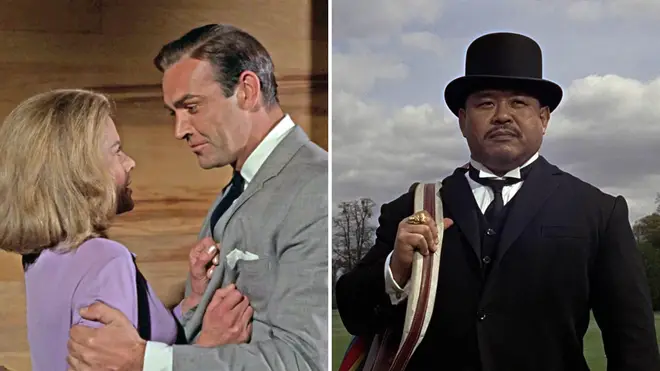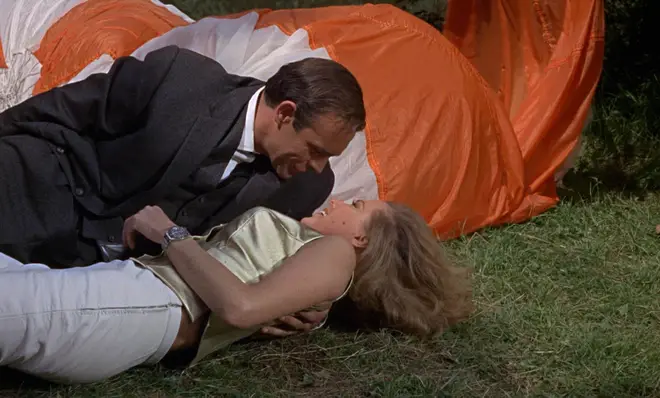
Ian Payne 4am - 7am
4 January 2024, 10:12 | Updated: 4 January 2024, 14:51

James Bond films have been slapped with a trigger warning as they may “cause offence” to modern viewers, the British Film Institute has warned.
Instalments of the spy franchise have been given a blanket trigger warning by the body tasked with promoting and preserving the best of British cinema.
Viewers attending a season of classic films have been warned that Bond's plots “will cause offence today”.
The disclaimer further warns that the films featured in the retrospective, You Only Live Twice and Goldfinger, contain examples of language and themes that were “prevalent” in the 1960s.
In Goldfinger Bond confronts Pussy Galore, played by Honor Blackman, in a barn and pins her down. She is seen struggling before relenting to his advances, and the scene cuts.
And the character of Oddjob, who suffers from a cleft palate, has been highlighted by some campaigners as an example of villains being given physical disfigurements or disabilities.
In the book for You Only Live Twice, the Korean character’s race is also frequently commented on, and it is made clear that Bond views Koreans as “lower than apes”.

Read More: James Bond star Pierce Brosnan in hot water over ‘trespass at Yellowstone’
Also present on BFI listings covered by the blanket trigger warning are the Sir Michael Caine films Deadfall and The Ipcress File, the Telegraph reports.
The 1960 Peter Sellers film crime film Never Let Go is also included as is the 1969 Oscar-winning Midnight Cowboy starring Jon Voight and Dustin Hofman.
The application of the warning to instalments in the Bond franchise comes after The Telegraph revealed that the original novels by Ian Fleming had been reworked to remove offensive passages, following an assessment by sensitivity readers.
The mysteries of Agatha Christie and the comic works of PG Wodehouse had been similarly edited to remove racial terminology from the texts.
A BFI spokesperson said: “As a cultural charity with responsibility for the preservation of film and moving image work and presenting it to audiences, we continuously face and deal with challenges presented by the history of film and television programmes and how they reflect views prevalent to their time.
“Whilst we have a responsibility to preserve films as close to their contemporaneous accuracy as possible, even where they contain language or depiction which we categorically reject, we also have a responsibility in how we present them to our audiences. The trigger warnings/content warnings that we provide in all of our exhibition spaces and online platforms act as guidance that a film or work reflects views of the time in which they were made and which may cause offence.
“We continuously review our processes around the presentation of film and moving image work to make improvements and support audience trust. We listen to customer feedback and also continue to work closely with the BBFC and their classifications to give appropriate guidance. This work is by its nature on-going.”